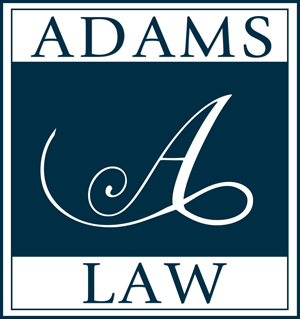California Employment Laws Updated for 2012
Pregnancy Disability Leave
Employers with five or more employees are required to continue to maintain and pay for health coverage under a group health plan for an eligible female employee who takes Pregnancy Disability Leave (PDL) up to a maximum of four months in a 12-month period. The benefits are at the same level and under the same conditions as if the employee had continued working during the leave period. Under current law, employers were only required to provide benefits for pregnancy leave to the same extent and for the same length of time as they would for other temporary disability leaves. If the employer was covered by the federal Family and Medical Leave Act, it had to provide continuing coverage during the 12 weeks of FMLA leave. The new law requires group health insurance continuation coverage for all employers with five or more employees regardless of how they treat other temporary disability leave and regardless of FMLA coverage.
Willful Misclassification of Independent Contractors
Penalties of between $5,000 to $25,000 went into effect for the “willful misclassification” of independent contractors. Willful misclassification is defined as: “avoiding employee status for an individual by voluntarily and knowingly misclassifying that individual as an independent contractor.” The law also imposes joint liability on non-attorney outside consultants who knowingly advise an employer to treat an individual as an independent contractor to avoid employee status.
Written Commission Agreement
If you earn commission, your employer is now required to put commission pay agreements into a signed written contract. The written contract must set forth the method by which the commissions will be computed and paid. If the contract expires but the parties keep working under the expired contract, the contract terms are presumed to remain in effect unless superseded by a new contract or the employment relationship is terminated. The bill is effective January 1, 2013. Employers have the entirety of 2012 to bring their commission agreements into compliance.
Notice of Pay Details
-The rate of pay and the basis, whether hourly, salary, piece commission or otherwise, including any overtime rate
-Allowances, if any, claimed as part of the minimum wage, including meal and lodging allowances
-The regular pay day designated by the employer as required under the Labor Code
-The name of the employer, including any “doing business as” names
-The physical address of the employer’s main office or principal place of business and any mailing address, if different
-The telephone number of the employer & the name, address and telephone number of the employer’s workers’ compensation carrier
The law also requires notice of any other information the Labor Commissioner deems material and necessary. The Labor Commissioner is to provide a template. The new law only applies to nonexempt employees, which again highlights the need for properly classifying employees at the time of hire. If there is any change to the information in the notice, the employer must notify each employee, in writing, within seven calendar days of the changes, unless such changes are elsewhere reflected on a timely wage statement or other writing required by law. This legislation also increases penalties for wage violations and makes further changes regarding collection of such penalties, including an increase in the statute of limitations.
Gender Expression
The Fair Employment and Housing Act was amended to further define “gender” to include both “gender identity” and “gender expression” and to make clear that discrimination on either basis is prohibited. Current law only uses the term gender identity. AB 887 also amends Government Code section 12949 relating to dress codes to include that an employee must be allowed to dress consistently with both the employee’s gender identity and gender expression. “Gender expression” is defined as “a person’s gender-related appearance and behavior whether or not stereotypically associated with the person’s assigned sex at birth.” This definition is not a change from existing law relating to gender identity.
Interference With Rights Under Leave Laws
Language was added to the California Family Rights Act (CFRA) and the Pregnancy Disability Leave law (PDL) that makes it unlawful to interfere with or in any way restrain the exercise of rights under these laws. This added language should not be a change to existing employer obligations since this is already a requirement under the federal Family and Medical Leave Act (FMLA).
Administrative Penalties
Employees who allege a minimum wage violation are now permitted to seek the recovery of liquidated damages pursuant to any complaint brought before the Division of Labor Standards Enforcement. Existing law allows such damages in any complaint before a civil court, but not in an administrative proceeding before the Labor Commissioner. This new law would allow the Labor Commissioner to also award such damages. Under the new liquidated damages provision, the employee would be entitled to recover an amount equal to the wages unlawfully unpaid, plus interest.
Wage Penalties
The maximum penalties were increased for violations of prevailing wage obligations. These obligations apply to certain state or federal contracts and generally require a wage set that is significantly higher than minimum wage. It also increases the penalty from $25 to $100 per calendar day, per worker, against contractors and subcontractors that fail to respond to a written request for payroll records within 10 days.





